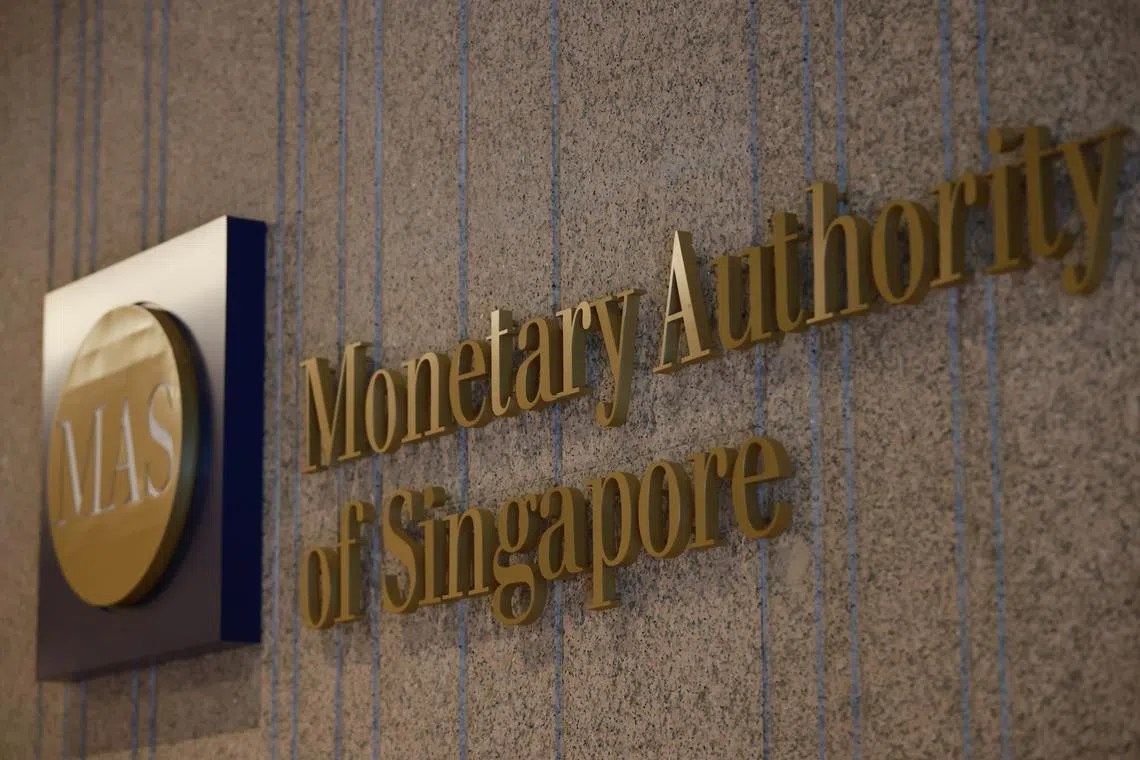MAS to review extension of brief ban on non-bank, non-card remittances to China
Sign up now: Get ST's newsletters delivered to your inbox

MAS and the police are continuing to engage the relevant agencies in China to understand the situation and to see what can be done.
ST PHOTO: JASON QUAH
Follow topic:
SINGAPORE - The Monetary Authority of Singapore (MAS) will review before March 31 whether to extend the temporary ban on non-bank and non-card remittances to China, said Minister of State for Trade and Industry Alvin Tan.
He was replying in Parliament on Jan 10 to Workers’ Party MP Gerald Giam (Aljunied GRC), who had asked if MAS would completely prohibit remittance companies from using non-bank and non-card channels, or extend the current temporary suspension.
Remittance companies here were directed in mid-December to suspend for three months the use of non-bank and non-card channels
So, from Jan 1 to March 31, they have to engage a bank, a card network operator such as UnionPay International, or a licensed financial institution that has engaged a bank or a card network operator, to assist with such transfers.
The suspension came after the police received more than 670 reports of remittances through non-bank, non-card channels being frozen as at Dec 15, 2023, involving a total amount of around $13 million.
Mr Tan, who is an MAS board member, also said that the number of complaints directly received by MAS in 2023 on alleged failed remittances is lower than 100, and they amount to less than 0.01 per cent of the total value remitted from Singapore.
Mr Louis Chua (Sengkang GRC) had asked if remittance companies in Singapore that were involved in the transfers of monies to China are obliged to ensure the monies reach the intended destinations.
Mr Tan replied that the issue in this instance was not about failed remittance, but about funds that had been successfully remitted and deposited into the recipients’ bank accounts.
These funds were then frozen or forfeited by the Chinese law enforcement agencies.
“In this regard, MAS considers the remittance companies to have discharged their obligations once the funds have reached the intended recipient,” said Mr Tan, who was replying on behalf of Deputy Prime Minister and Finance Minister Lawrence Wong, who is also MAS chairman.
He added that MAS and the Singapore Police Force are continuing to engage the relevant agencies in China to understand the situation and to see what can be done.
To keep transaction costs low, people were relying on remittance companies to send money overseas instead of making a direct bank transfer from Singapore to China.
In Singapore, licensed payment service providers must ensure that any money accepted for such transfer services is deposited in the designated recipient’s accounts within three to seven business days.
There must be documentary evidence to show that the recipient had received the money remitted.
MAS will undertake a supervisory review and/or take enforcement action for breaches, including reviewing the licensee’s suitability to hold a licence under the Payment Services Act.
Mr Tan noted that affected remitters whose intended recipients did not receive the money sent should first approach the remittance company concerned for resolution.
If the matter cannot be resolved, affected remitters may file a claim at the Small Claims Tribunals for amounts up to $30,000 or consider seeking legal advice on civil action to be taken against the remittance company.


